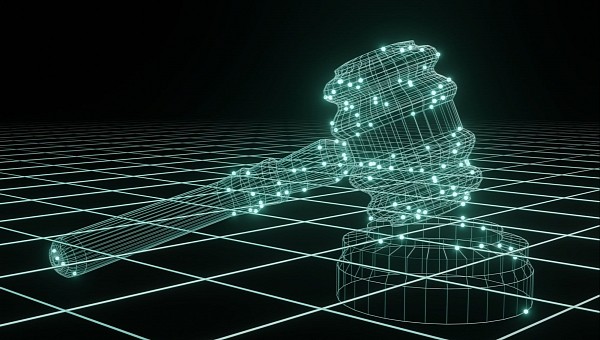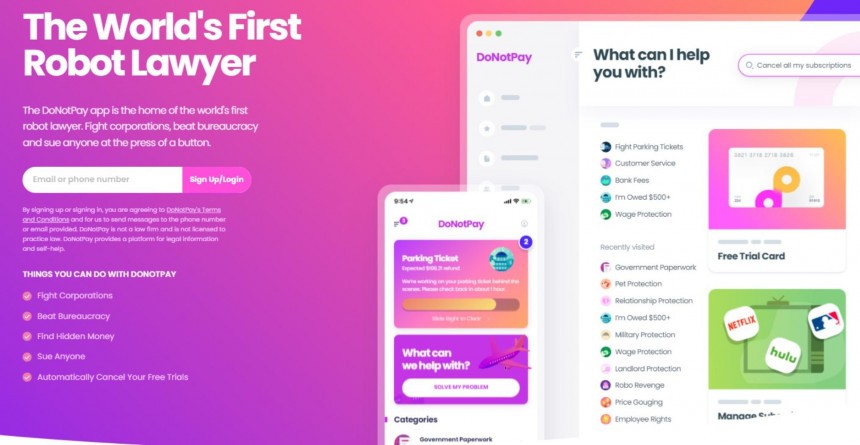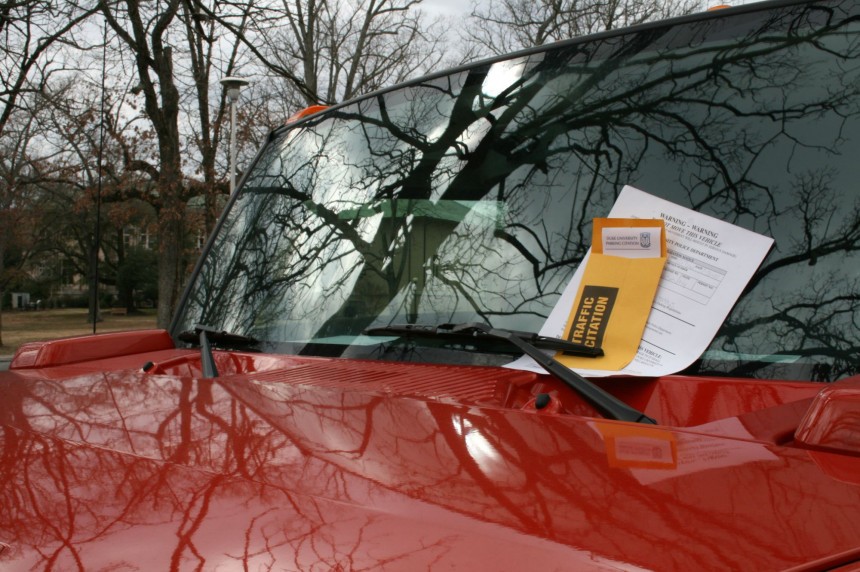Artificial intelligence is constantly evolving, and more and more industries integrate such technologies into their operations. Imagine this – instead of hiring a lawyer, you rely on a robot to care for your legal troubles. Well, this is what DoNotPay has envisioned with its robot lawyer software. The company aims to level the playing field by making legal help accessible to everyone. For the first time ever, the AI-powered robot lawyer will defend a human sometime in February.
Chatbots are becoming increasingly advanced lately. For instance, OpenAI's ChatGPT was launched to the public as a prototype in late November last year and has managed to go viral. The AI interacts conversationally - it can talk to users in a compelling, human-like way and answer most of their questions.
So, why not apply this kind of technology to what goes on in court rooms? This has been done before – back in 2015, a 19-year-old Standford University student developed a free chatbot that helped overturn a staggering 160,000 New York parking tickets in only 21 months. The tickets would have cost over $4M, so it's safe to say that his technology made many people happy, especially since it was free. The service was used on 250,000 cases, out of which 160,000 were won – that's a 64% success rate.
Guess what – that was the start of DoNotPay, and the young student was Joshua Browder, the founder and CEO of the company. Years later, his work paid off, as we're gearing up for the first U.S. court case featuring an AI lawyer. After ChatGPT emerged in 2020, DoNotPay shifted its focus to AI and used it to power its robot lawyer. Let me tell you more about how the technology will be implemented.
Regulations about AI use in the courtroom have yet to be defined. That's why it's a bit risky – DoNotPay hasn't disclosed any case specifics because what it's doing can be considered a violation of courtroom protocols and laws. We also don't have much information about this specific case due to privacy issues.
DoNotPay has found a loophole to make the feat possible. According to Gizmodo, the AI will coach a courtroom defendant on what to say to get out of a fine and avoid the consequences of a speeding charge.
In numerous countries and jurisdictions across the globe, internet-connected devices are forbidden from courts. To bypass these restrictions, Browder is relying on hearing accessibility standards. Specifically, DoNotPay will use Apple AirPods to communicate. Moreover, Browder declared that the court would not be made aware of the AI assistance during the hearing.
The company will also assist in another U.S.-based speeding ticket case that will go to Zoom trial. It's considering using a teleprompter or a synthetic voice, which Browder described as "highly illegal." The company isn't too concerned about legal consequences, as this is a low-profile traffic ticket. He added, "it's an experiment, and we like to take risks." It's clear that a few regulations won't stop Browder from breaking new grounds.
Regarding both cases, the company will not take any responsibility for the resulting fines, and the two defendants will be compensated for using DoNotPay. In case of a loss, the company will cover the traffic ticket fine. So, either way, the defendant is covered regardless of the outcome.
The AI has been comprehensively trained to stay within provided facts to avoid a courtroom perjury charge. Instead of responding to every statement in the court, the chatbot will analyze the courtroom arguments.
Since 2015, DoNotPay claims it has resolved over 2 million cases. It's also effective in negotiating various deals. For instance, Browder showed how the ChatGPT-powered technology managed to cut 10$ off a monthly internet subscription. Combined with a synthesized voice, it also reversed $16 worth of bank fees. Browder believes these are the kind of cases that can most benefit from DoNotPay, at least for the time being and in the immediate future. His goal is to eventually replace lawyers altogether with AI technology.
DoNotPay's website displays various use cases, from annulling marriage to fighting medical fraud and many more. In a promotional video for the service, Browder says, "We help consumers fight corporations and beat bureaucracy, getting them out of parking tickets and refunds from big companies like airlines... our vision at DoNotPay is to make the law free." If you want to test it out for yourself, DoNotPay is available at a subscription cost of $35 for three months.
We'll have to wait until late February to see the trial's outcome – Browder declared DoNotPay would reveal the results of both cases after their conclusion. What do you think? Will the AI keep up with the courtroom dynamics and help the defendants win the case? This is the perfect opportunity for the company to prove its capabilities.
So, why not apply this kind of technology to what goes on in court rooms? This has been done before – back in 2015, a 19-year-old Standford University student developed a free chatbot that helped overturn a staggering 160,000 New York parking tickets in only 21 months. The tickets would have cost over $4M, so it's safe to say that his technology made many people happy, especially since it was free. The service was used on 250,000 cases, out of which 160,000 were won – that's a 64% success rate.
Guess what – that was the start of DoNotPay, and the young student was Joshua Browder, the founder and CEO of the company. Years later, his work paid off, as we're gearing up for the first U.S. court case featuring an AI lawyer. After ChatGPT emerged in 2020, DoNotPay shifted its focus to AI and used it to power its robot lawyer. Let me tell you more about how the technology will be implemented.
Regulations about AI use in the courtroom have yet to be defined. That's why it's a bit risky – DoNotPay hasn't disclosed any case specifics because what it's doing can be considered a violation of courtroom protocols and laws. We also don't have much information about this specific case due to privacy issues.
In numerous countries and jurisdictions across the globe, internet-connected devices are forbidden from courts. To bypass these restrictions, Browder is relying on hearing accessibility standards. Specifically, DoNotPay will use Apple AirPods to communicate. Moreover, Browder declared that the court would not be made aware of the AI assistance during the hearing.
The company will also assist in another U.S.-based speeding ticket case that will go to Zoom trial. It's considering using a teleprompter or a synthetic voice, which Browder described as "highly illegal." The company isn't too concerned about legal consequences, as this is a low-profile traffic ticket. He added, "it's an experiment, and we like to take risks." It's clear that a few regulations won't stop Browder from breaking new grounds.
Regarding both cases, the company will not take any responsibility for the resulting fines, and the two defendants will be compensated for using DoNotPay. In case of a loss, the company will cover the traffic ticket fine. So, either way, the defendant is covered regardless of the outcome.
Since 2015, DoNotPay claims it has resolved over 2 million cases. It's also effective in negotiating various deals. For instance, Browder showed how the ChatGPT-powered technology managed to cut 10$ off a monthly internet subscription. Combined with a synthesized voice, it also reversed $16 worth of bank fees. Browder believes these are the kind of cases that can most benefit from DoNotPay, at least for the time being and in the immediate future. His goal is to eventually replace lawyers altogether with AI technology.
DoNotPay's website displays various use cases, from annulling marriage to fighting medical fraud and many more. In a promotional video for the service, Browder says, "We help consumers fight corporations and beat bureaucracy, getting them out of parking tickets and refunds from big companies like airlines... our vision at DoNotPay is to make the law free." If you want to test it out for yourself, DoNotPay is available at a subscription cost of $35 for three months.
We'll have to wait until late February to see the trial's outcome – Browder declared DoNotPay would reveal the results of both cases after their conclusion. What do you think? Will the AI keep up with the courtroom dynamics and help the defendants win the case? This is the perfect opportunity for the company to prove its capabilities.








